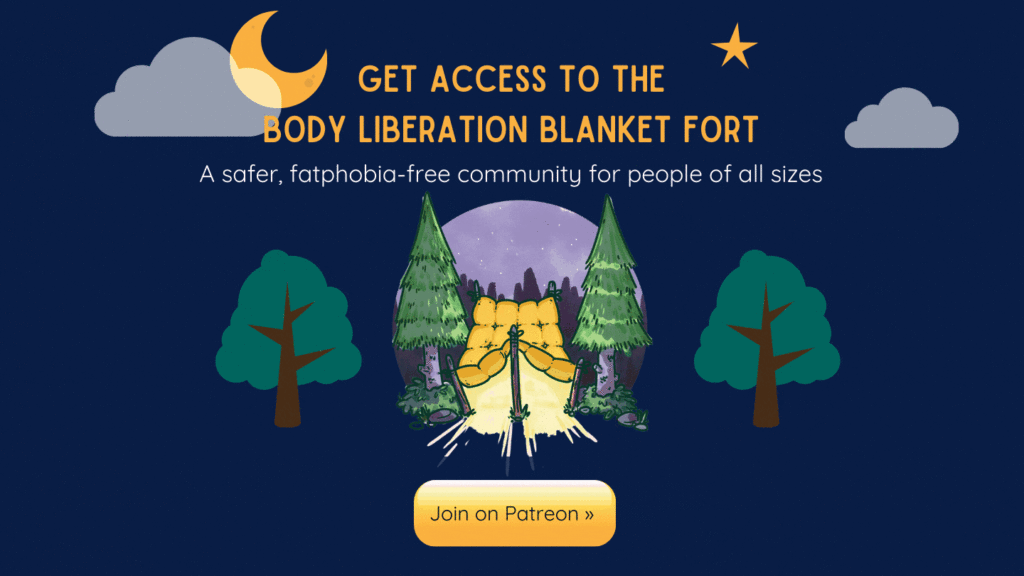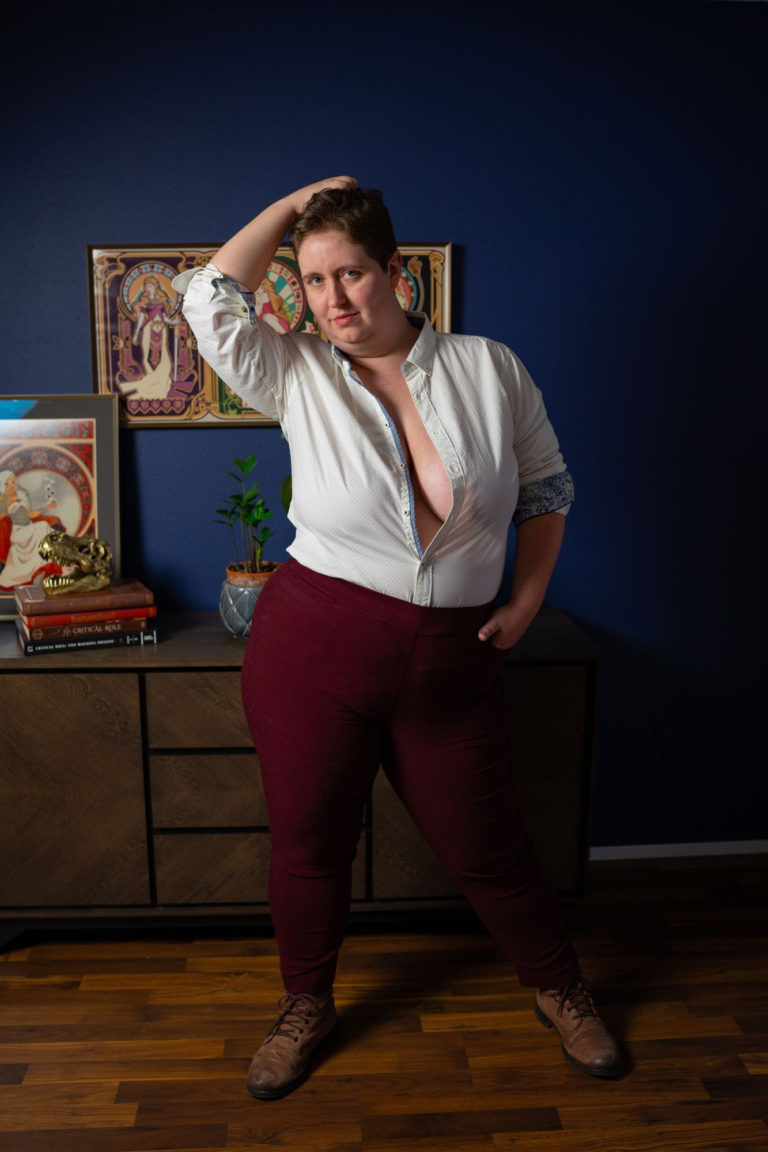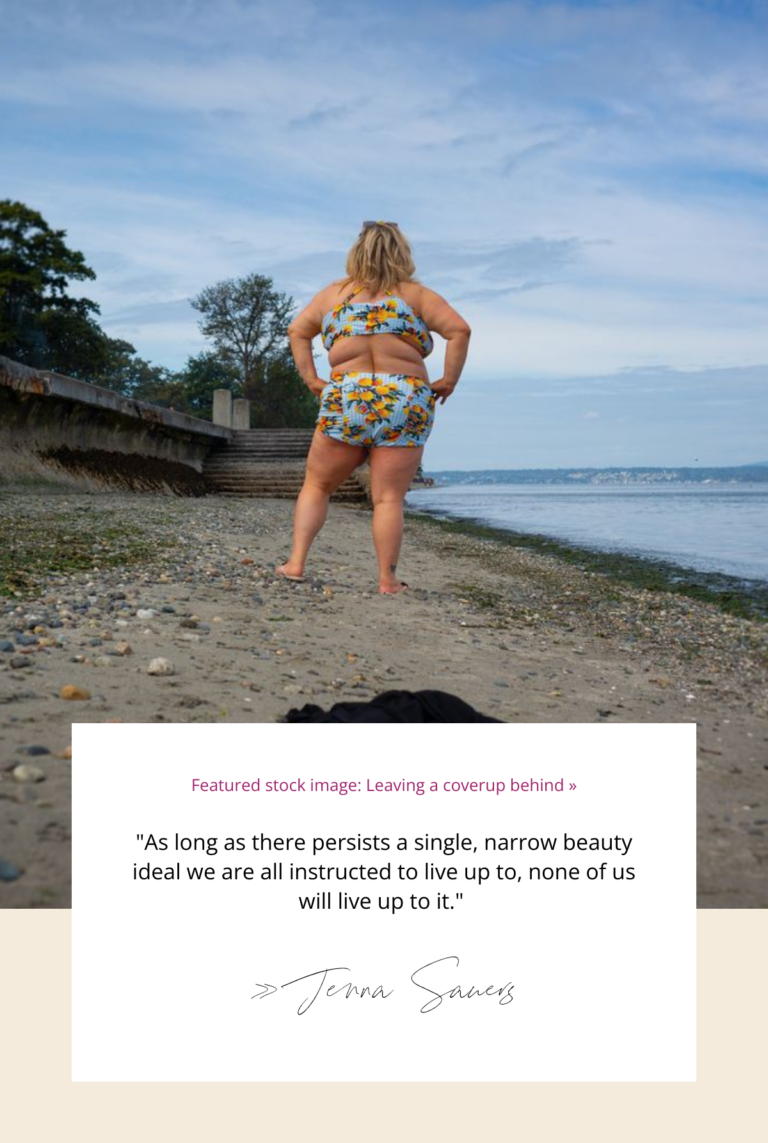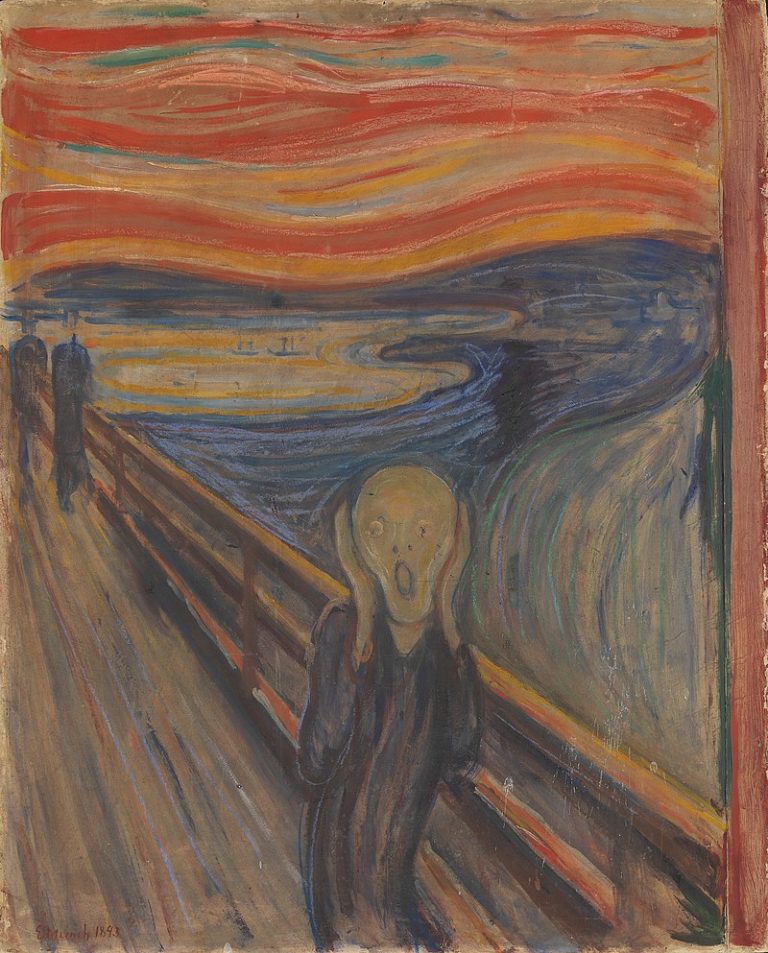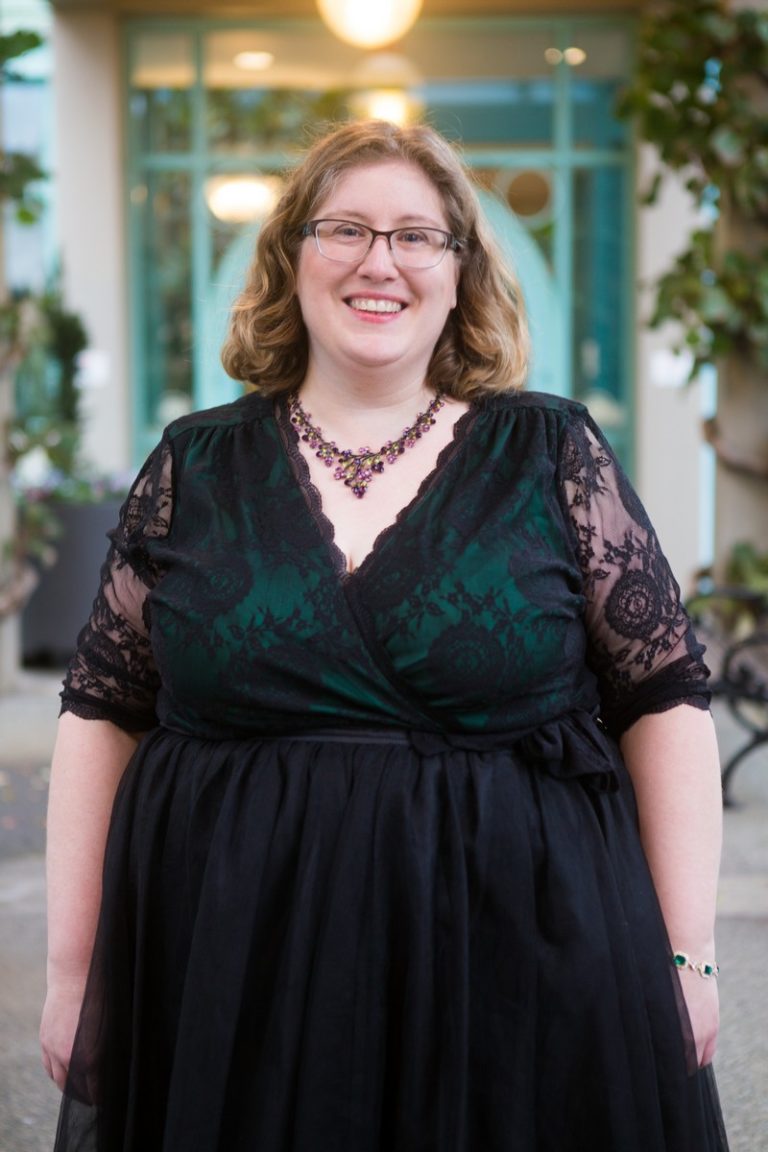Listen: Lindley on the All Fired Up! Podcast on Confidence Magic, Taking on Whole30 and Body Liberation Through Photos
Louise Adams may call her wonderful podcast All Fired Up!, but I think of my episode as a phrase a little closer to my Southern U.S. roots: I’m all het up.
I went down a small rabbit hole looking up the origins of that phrase, and it turns out that it’s a shortening of “heated up” and is at least a century old.
At any rate, I do get het up when I see injustice, especially injustice to fat folks, and that was a major topic of our podcast episode.
I’ll let Louise describe the rest:
My guest this week is the fierce and fabulous Lindley Ashline, fat-positive photographer and body liberation activist, who has literally BANNED the weight loss industry from using her stock photos. In this glorious episode, Lindley tells how she pushed back when a diet company tried to do just that! The AUDACITY of diet companies and the weight loss industry is next level, but they were no match for Lindley! Join us for a completely fired up, inspiring conversation with a woman who takes no bullshit, AND takes staggeringly awesome photos!
Listen or read below:
Episode Transcript
Intro: Welcome to All Fired Up. I’m Louise your host, and this is the podcast where we talk all things anti-diet. Have diet culture got you in a bit of rage/ is the injustice of the beauty ideal? Getting your nickers in a twist? Does fitspo make you want to spitspo? Are you ready to hurl if you hear one more weight loss tip? Are you ready to be mad, loud and proud? Well, you’ve come to the right place. Let’s get all fired up.
Hello, passionately pissed off people of diet culture. I am so excited for some episode of All Fired Up. And thank you to all of the listeners who send messages of outrage to me via email [email protected]. If something about diet culture is really getting your go, let me know about it, get it off your chest. And who knows, we might be able to rant about it here on All Fired Up.
And if you are a listener, don’t forget to subscribe, so you don’t miss episodes when they pop out. And while you’re at it, why not leave us a lovely five star review and rating wherever you listen to your podcast, because the more five star reviews we get, the more people listen, the quicker diet culture topples, and then I can go and become a florist. As the COVID crisis unravels, more and more people are banging on about the relationship between weight and health. And if that’s really getting up your nose and you want a strong resource to help you push back against that, and you want something for free; look no further then now wonderful ebook, ‘Everything you’ve Been Told About Weight Loss is Bull Shit’ co-written by me and the wonderful Dr. Fiona Willer, anti-diet dietician, and general all-round awesome person.
In this ebook, we are busting wide open the diet culture bullshit myths about this relationship. Because when you look under the hood and scratch the surface just a tiny, tiny bit, we see that all of this BMI stuff is complete bullshit, and it’s great to have a booklet in which all of the scientific evidence to support the health at every size and anti-diet approaches can be presented to people who are still upholding the greatest injustice when it comes to health. So have a look for the ebook, it’s at untrapped.com.au, and a little popup will happen, and you can download it from there. Give it to all your friends and all your family. Put it in their stockings for people for Christmas, give it away, trick or treating for Halloween. Hell you know, give it away instead of Easter eggs, just get it out there to as many people as possible because just so over this groaning insistence that size is all accounts when it comes to health.
If you’re looking for more free stuff and you’re struggling with your relationship with your body, because let’s face it – who doesn’t in diet culture. Have a look at the Befriending Your Body eCourse, which is completely free. You can find that on untrapped_au on Insta. In this course, basically you’ll get like an email from me for 10 days. Every day for 10 days, you get a lovely little email from me talking through the wonderful skill of self-compassion, which is essentially literally learning how to become your body’s best friend and become your own best friend as you wade through the of diet culture. So have a look for that course, as I said, it’s on Instagram, it’s completely free. What have you got to lose?
Huge shout out to all of the Untrapped community. Untrapped is my online community and masterclass for all things anti-diet. Untrapped has been around since 2017. And we have built ourselves into this wonderful online group of fierce and fantastic people. If you are struggling with your relationship with food, with how you are moving, with your body, with just generally trying to get along in diet culture with all of the pressure that’s heaped upon us every day and you’re just absolutely sick of dieting; have a look at our Untrapped course and community because we would really love to have more people join us. You can find it at untrapped.com.au.
Louise: Okay, let’s get into the nitty-gritty. Shall we? I’m so excited in this episode, I’m having this awesome conversation with fat activist, photographer, author, and cat mom, Lindley Ashline. Lindley is the creator of Body Liberation Photos and does some really amazing ethically produced diverse stock photos of people in larger bodies. And, oh my gosh, how much do we actually need this kind of stuff. So I had the most amazing ranty conversation with Lindley. You are going to absolutely love her. So without further ado, here’s me and Lindley. Lindley, thank you so much for coming on the show.
Lindley: Oh, thanks for having me. I’m so excited to be here.
New in the Body Love Shop
Louise: Me too. So tell me, what’s firing you up at the moment?
Lindley: Well, when we were emailing back and forth talking about doing this podcast episode you had said, I want to hear what’s firing you up, and I would love to hear you talk about stock photos, which are photos that can be used for marketing that people buy from other people. And also, wondering if you’ve experienced any diet culture co-opting of your work. And I immediately said, I have all that put together because I do have the stock photo website where I sell my photos. And most of my clients, my stock photo customers are health at every size oriented, or anti-diet, or body positivity folks who are marketing their small businesses. But the other day there is a diet that is probably familiar to you, that is very big here in the United States, that is called Whole30.
Louise: Whole30, is that the [unclear05:59] Brown one? Was she doing that?
Lindley: Oh, I don’t know.
Louise: I’m sorry.
Lindley: That’s very, very trendy here. So, someone from Whole30, the company that runs that diet bought some of my stock photos.
Louise: Oh no.
Lindley: To use for an event. And I know this because I reacted to that. I’m a small business, so I do sell a decent number of stock photos, but I’m not at the point where I don’t see every order as it comes in. So every time someone buys something from me, I get an email, of course, and I’m always curious, who’s buying things. So I saw this such-and-such a name @whole30.com. And I said, wait a minute. Because not only do I not want… my photos are, they’re mostly people in larger bodies or fat bodies. When I use the word fat, I’m using it as a neutral descriptor of people’s bodies and not an insult. You don’t have to use that word for yourself, but I have reclaimed it and many other people have too.
Louise: That’s such a beautiful way of putting it. Thank you.
Lindley: Oh, thank you. Yeah, it’s like saying that I’m a medium height, or if I were tall or short, I have long hair. It’s just a descriptor. But the people who appear in those photos, they are in vulnerable bodies themselves. They are often people of color. They are people in very large bodies; people who experience a lot of discrimination and stigma just by living in their bodies. And not only do I not want those bodies being used to represent diet…
Louise: Yeah, like they’re not before photos.
Lindley: Yeah. No, but also when I started creating stock photos, I worked with a lawyer to create my license that you are bound by when you buy these photos, you have to agree that you’re going to respect this license to use the photos, and in the license, it specifies that you cannot use them to promote diets.
Louise: You are terrific. So they’re buying it in breach of your licensing already.
Lindley: Yeah. If I’m going to set out to create body-positive and fat-positive stock photos, and work with people who are in marginalized bodies to start with; I can’t allow those photos to be used in ways that will hurt people.
Louise: How dare they. They have the audacity.
Lindley: I was very fired up speaking into the theme. Oh, I was fired up and I said, no, how you. I immediately messaged my best friend and said, how dare they. And so, I emailed her, I issued her a refund. So here’s what I did; I issued her a refund for the money that she’s paid. I deleted her account. I couldn’t delete the account, so I changed her password on her. I couldn’t delete it, but I could change the password. And then I emailed her and said I have refunded your money, you may not use these photos, my license prohibits you from doing so. And that’s that.
Louise: So, did she respond to you?
New at Body Liberation Stock
Lindley: Well, to make it even better, she had put her work email address in when she placed the order. But for her billing address, she was using a corporate credit card. So she had put as the email for the credit card, she had put in the corporate address. So I emailed her, but I CC’d the whole company.
Louise: Oh my God. That’s fantastic.
Lindley: CC’d [email protected]. I’m sure that maybe just a random assistance, someone deleted it, but like, I’m sure it didn’t go to all the employees, but that was very satisfying.
Louise: That is very satisfying. So she did email?
Lindley: Yeah, she emailed right back and sent me kind of an indignant email. And she did say that they wouldn’t use the photos. I keep meaning to go check and see if they actually did. But she was very indignant because she said we were going to use these for an event to promote body positivity next month, and I guess we won’t. And I’m like, yeah, I guess you won’t.
Louise: What are you doing in the field of so-called body positivity if you’re a diet company?
Lindley: And that’s the co-opting, that aspect of it. Because now, like Weight Watchers has changed its name formally to WW. What does that even mean? Like, we all know it’s Weight Watchers, we’re not stupid
Louise: Well, they think that we might be. Do you remember in the eighties when Kentucky Fried Chicken decided to improve its brand by going to KFC, because then it wouldn’t be fried.
Lindley: But it’s still fried chicken.
Louise: Yeah. And this is still like, we want your money.
Lindley: Yeah. And they’ve realized that people are wing up.
Louise: We know that their diets are shit.
Lindley: Yeah. They don’t work, and in fact, they’re worse for you, for your health than not dieting than being at a stable weight.
Louise: Yeah. And then they’re like, well, we can’t have that, so let’s launch into the field that grew around resistance to us, and let’s nick everything, including their stock imagery. And how dare they run a body positivity event when they’re in the business of shrinking bodies.
Lindley: And as we move forward in time, you’re going to see more and more of this because there is a lot of profit in telling people to love their bodies while selling them products because you made them hate their bodies. And in the body positivity movement, it’s really rampant. If you look at Dove, Dove is one of the first companies to really monetize at a grand scale the body positivity movement. In the last decade, they’ve done a bunch of very high profile feel good, “love your body no matter what,” you can’t see me, but I’m making really sarcastic hand gestures right now.
Louise: Yeah, I’m loving it.
Lindley: I mean, you can see me, but our listeners will be able to. But all these love your body just the way you are things, but at the same time, they’re selling skin lightning cream to people of color.
Louise: How dare they?
Lindley: And they’re selling wrinkle cream or whatever.
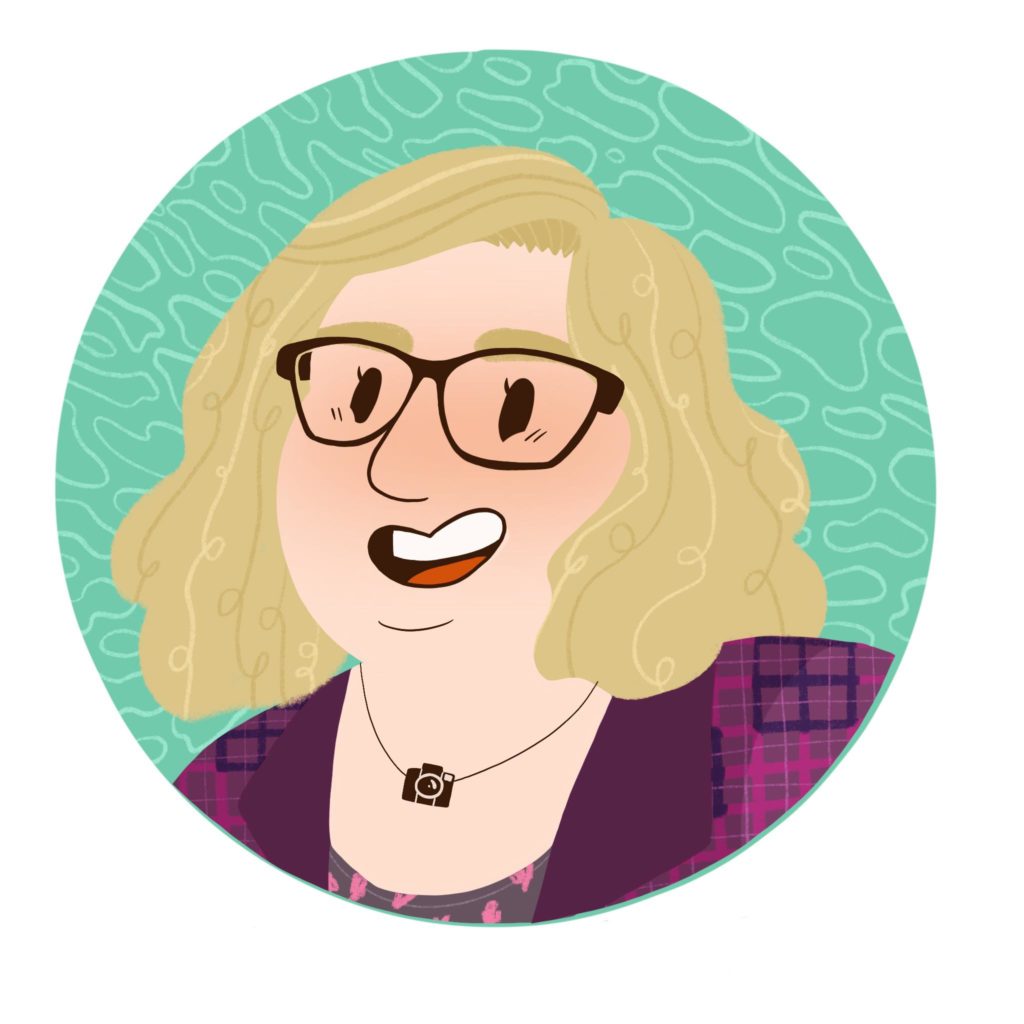
Every Monday, I send out my Body Liberation Guide, a thoughtful email jam-packed with resources on body liberation, weight stigma, body image and more. And it’s free. Let’s change the world together. Subscribe »
Louise: Anti-aging, right?
Lindley: Yeah, so it’s very two-faced.
Louise: Yeah, they were just changing the marketing where baiting and switching people on a global scale. And I agree. I think we’re going to see more and more and more of it, but it’s also like kind of core at the same time, because the fact that these big nasty wolves are coming to sniff at your door means that you are the one with the power, right. Body positivity movements are the ones who are driving the direction of – like the increasing level of diversity that’s happening around the planet. I think they’re just getting a bit desperate.
Lindley: I mean, these are dinosaurs – that meteorite is coming. And I want to say too, for our listeners, I want to acknowledge, because you don’t hear this stated enough, how traumatic, like full-on psychologically traumatic it is for both us as a culture and for people as individuals to be told for hundreds of years that their bodies, particularly fat bodies, and particularly women’s bodies, but all bodies are bad in their natural states. And then have a generation of companies turn around and tell us that it’s our fault for not loving those bodies. That’s trauma. That is trauma – culturally and individually. So I want to be very clear that if you don’t love your body, which most people don’t, I have days I do and days I don’t, but if you don’t love your body, that is not on you, that is on hundreds of years of culture driving up and product power, so it’s not you.
Louise: It’s the system.
Lindley: Yeah. And you’re not individually possible for fixing that, unless you want to.
Louise: I’m so glad you’re here. You are on fire and I love it.
Lindley: I get so angry at the scam that’s been perpetuated.
Louise: Yes, that’s exactly what it is. It’s a giant gaslighting scam that turns us against ourselves and each other. And when we kind of hit body size as a measure of worth, it’s really damaging and divisive. I really want to ask how you got to this point.
Lindley: I got mad.
Louise: Yeah, how did you get mad? Like, how did you come to have this amazing idea to start the body liberation stock photography stuff, and come to it with so much conviction to protect people who have been marginalized?
Lindley: Well, it’s been a process of about – it took about 10 years to go from being very, very sort of normal person invested in diet culture, sort of very mainstream, to being very passionately anti-diet and doing this activism work. In 2007, thereabouts, I discovered I had been on the website live journal for a very long time. At that point, it was like a pre-Facebook.
Louise: The dark days of early internet.
Lindley: Yeah. And I had stumbled across this group called Fatshionista. So like fashionista, but with fat folk. And it was such a revelation because here were these mostly women who were in large bodies in very large bodies who were being styling and confident and walking around in horizontal stripes.
Louise: Oh my God.
Lindley: And tight fitting outfits and colorful outfits and just living their lives confidently. And I just lurk for a really long time. But from there I started discovering… so the pre-cursor, these of foundation of the body positive movement is the fat acceptance movement, which started in the 1960s and has been the backbone of all of this. So this was a little bit before body positivity became a thing. And I found these fat acceptance blogs, where they were talking about the science of weight loss and why scientifically it doesn’t work. And I had been in this state that I think many people sort of existed where they’re like, well, it’s fine to say, love your body, but my body is big. My body is not okay. Like, that might be cool for other people, like maybe other people deserve to be confident. But something about…
Louise: Gosh, that is like, when you said that, that is like where so many of us are stuck. Like it’s okay for everyone else and I love the idea of diversity and I love the idea that large and small and everyone in between can exist, but my body. I can’t get there.
Lindley: Yeah. And so, when I learned the science and the fact that somewhere around 98% of diets fail and that people gain the weight back, I started to feel like I’d been scammed. I’d been raised my whole life to believe that if I could just be good enough and strong enough and have enough willpower and do the right things for long enough, then I too would be thin and healthy and fabulous and have the life I’d always dreamed of and all those other things you see in diet ads, and it turned out none of that was true.
Louise: It’s bullshit. Amazing.
Lindley: I started to get annoyed and then gradually I got mad, and then I got really mad.
Louise: Excellent.
Lindley: And then I started doing my own activism work because it was so tragic to see people that I love trapped in that system and be lied to. And so, I started speaking out – just a little bit, just a little bit. Like, I’d post something on my Facebook about, “Hey, we know that diets don’t work because of science.”
Louise: Yeah. I mean, like in tiny little writing.
Lindley: Yeah. And that’s really scary when you start doing it because it’s so counter to what we think we know. So in about 2015, I was in a really crappy job, after a series of really crappy jobs, corporate full-time jobs. And I said, you know what, I got to a breaking point. And I said, “I’m done. I want to take my photography and turn it into a full-time business.”
Louise: So you’d learned photography for a while.
Lindley: Yeah. Well, I’ve done nature photography for many, many years, but I had never photographed people.
Louise: Interesting.
Lindley: So I took a year and I took a bunch of classes online and then I learned to photograph people. So in 2015, I quit that job. And I want to acknowledge my privilege here. I am a white cisgender straight woman who lives in the United States, and my husband is my financial safety net, so I was able to take that. I also have a part-time job as well, but I was able to take that leap because of my privilege. And so, I’ve always…
Louise: Because you have some security, yeah.
Lindley: There’s not a lot of path that is open to everyone, and so I always want to acknowledge that.
Louise: Yeah, it is really important, but I also think it’s kind of fabulous that there are people who are able to do that because what you’ve done is create something for so many people.
Lindley: And if you had asked me a decade ago, if you had said maybe in 10 years, how you feel about being a full time, small business person, photographer and activist, and I would’ve laughed in your face. Because at this point I have enough experience speaking out that I often sound very confident and powerful.
Louise: You do, you sound really fired up and it’s fantastic.
Lindley: Which is wonderful, but that is not where I came from.
Louise: So you took it on.
Lindley: Yeah, I came from a very meek sort of very nice lady, southern sweet background, where you never disagreed with anybody to their face. Not to their face…
Louise: Disagree behind their back with a cup of tea.
Lindley: Yeah. That’s how we do it in the south, the Southern US, we smile at your face and then snip at you behind your back. But like, I wasn’t brought up in a way where I was allowed to access anger or to even believe that I felt it.
Louise: It’s part of the, like, part of the gaslighting of diet culture is that it uses other gaslighting of being raised female, and like, just be nice and shut up and don’t rock the boat. And if you’re mad, it’s probably a period, right – it’s not worthy.
Lindley: Yeah. And it’s very threatening to a lot of people, too, particularly when someone in a fat body is angry, that’s very threatening because we are expected to shut up and take it. And so, I do get a lot of trolling. I’ve had some threats, but thankfully I’m not yet high profile enough to really be getting a lot of that. But it there’s been some unpleasantness.
Louise: It’s really terrible. What you were saying about the science stuff and speaking up about the science, its that’s sort of, my pathway was through the science as well, initially as well as like the massive sense of social justice and eating disorder work as well. But I’m so aware, and when I talk about the science, so if we were in the same room talking about the science, it’s possible that my voice would be listened to more, even though we’re talking about exactly the same thing, because our body sizes are different, which is ridiculous because actually you’ve got more lived experience alongside the science, so it’s kind of like what the…
Lindley: Yeah, yeah. We consider it culturally, we consider a thin body or a thinner body to be a credential, just like a degree. I was actually talking about this on Instagram literally last night that we consider thin body is to be a credential. So even though I live in this body and I have experience with this body, in general, I am considered as much of an authority on this body as someone who is in a more socially acceptable body.
Louise: Which is so weird, it’s like being like, oh, I’m the expert on same sex relationships, but I’m completely head show. Why would that credential be?
Lindley: Yeah. Again, when marginalized people are allowed to speak and allowed to be angry and allowed to be believed, it’s very threatening to the status quo. So it’s easier to, I mean, again, both at a cultural level and an individual level, it’s easier to assume that I am lying or that I’m exaggerating or that I am unacceptably angry or unacceptably sad or whatever, so that it blunts the impact of what I’m saying.
Louise: Yeah, it’s easy to dismiss something you don’t agree with.
Lindley: Right. I had someone who is in an average size body for here to the US. A maybe US 14, 16, which I think in Aussie size is about a 12.
New in the Body Love Shop
Louise: I have no idea because sizes confuse me.
Lindley: I think the Aussie sizes run one size lower, I think. But anyway, at any rate, someone who is of average size here in the US. And often I find, again, I am speaking for my US experience. I’m not speaking for the whole planet, but I often find that folks who are of the average size because of the nature of our culture, think that they are much larger or much farther along that spectrum. So I often find that there’s people who are of average size assume that the way that they are treated is the same way that people much larger than they are, are treated – which is not accurate.
Louise: But it’s about that unconscious, like they don’t know the privilege they have.
Lindley: Yeah, because it’s a spectrum. I live in a very large body, but I am nowhere in near the extreme end of the fatness spectrum. There are many, many people who are larger than I am. And then I have privilege over those people because I can still get clothes that are… I can’t get them in person. I mostly have to buy online, but I can still get clothing that’s commercially made. Even if it’s not the clothing I would prefer, and even if it doesn’t fit very well, I can still find clothing somehow. But this was a person who I think wasn’t quite ready to understand that that is a spectrum.
Louise: And that’s real.
Lindley: And I had written this, I was recently diagnosed with a new to me health condition that has been quite challenging and that I am pursuing treatment for. And the treatment for that condition, it is a stigmatized condition. I’m not going to go into details, but it is a stigmatized condition, and it is a condition that is correlated with larger bodies. We don’t have any scientific evidence that it is caused by being in a larger body, but it is correlated. And so, as someone who now has condition, there’s sort of a double stigma and there it’s been very challenging to get treatment.
Louise: So you’re stuck in the whole stigmatizing, like, medical condition stuff where they’re like, “Oh, you’ve got this condition. If your body was different, you wouldn’t have this condition,” Which is really not an interesting conversation, but it seems to be one that keeps on happening.
Lindley: Right. Right. And so, this is something that I have been dealing with for a while now. Just pursuing treatment and it’s taken much longer than it should have. And I was talking on my personal Facebook about the challenges of getting this health condition addressed and the ways in which some of those challenges have been caused by people reacting to my body size by fatphobia, plain and simple. And this person who has been listening to me speak for years and who is very earnest and was clearly trying very well intentioned. Because this was not the same experience that this other woman had had in her life, she approached me and wrote me a long message about how I was basically bringing all this on myself.
Louise: Oh, bringing all of what on yourself?
Lindley: That maybe I was just imagining that people were treating me poorly.
Louise: Oh ouch. Oh dear.
Lindley: Because I was putting out negative energy into the world, and so my poor treatment was my own fault. And there was a time in my life that I would’ve been devastated and I would’ve believed her. I would’ve gone, “Oh no, maybe because I’m in a fat body, maybe I am putting some kind of energy out into the world that maybe I just, oh no, it’s all my fault.”
Louise: Oh wow.
Lindley: And my friend Brandy, calls this confidence magic.
Louise: Good time.
Lindley: Yeah. She said she calls it confidence magic because she is also in a very large body. And quite often, when we talk about the way we’re treated it, the retort is, well, if you were just acted more confident, if you were just friendlier, if you just did X, Y, Z. But mostly, if you just acted more confidently, then people wouldn’t treat you that way. And it’s entirely possible that for someone who is in a smaller than ours body, that works. Maybe it does work if you’re in a smaller body. But I want to be very that there is nothing I can do or not do that will make my body not an oppressed body. It doesn’t matter what kind of energy I put out into the world, I don’t deserve to be treated poorly, especially for the size of my body.
Louise: It’s putting emphasis back onto you, it puts it back onto you and it takes the focus away from the person who’s being the dick head.
Lindley: Right. My oppression is never my fault, period. And so now I asked her to sit down and really look at that discomfort because the problem was that she had reached a point where she couldn’t imagine that people actually get treated the way that I was describing. And so, it was so uncomfortable to realize that her experience was universal, that she sort of flipped over into this default state of, oh no, you must have done it to yourself, because it it’s so hard to think. It is hard to think about people you like being mistreated. And it’s easier to think that it must somehow be under their control it, that it [unclear28:21] behavior.
Louise: Exactly. I was going to say that it’s a locus of control problem. If we can locate the problem within us, then we feel like it’s controllable and that we can do something about it. But to actually kind of recognize that this is structural, this is big. And we can be as kind and nice and put as much positive energy crystals out to the universe as possible and it won’t change fatphobia.
Lindley: Yeah. And unfortunately, this particular person was not receptive to being asked to reevaluate what she was saying, and so she wandered off and I haven’t seen her since. But it really illustrates that when we start learning about systems of oppression, it can be really uncomfortable. As an America, I have had to do a lot of work around racism and a lot of learning, and as a very white person, that is very uncomfortable. But also, I feel like it’s part of my job on this planet.
Louise: We’re not always supposed to be comfortable.
Lindley: Yeah. And it’s okay to be uncomfortable, especially when you’re learning; you have to learn to sit with it.
New at Body Liberation Stock
Louise: Yeah. Gosh, like there’s so much that you have to deal with, when all you’re really wanting to do is get on Facebook and talk about it.
Lindley: I just want to whine on Facebook, and now too, my personal Facebook, because I have so many professional connections there, it is up being a hybrid. It is a hybrid space. When I’m speaking there, half of the folks who are in my sphere are there because of my work, so it’s never really personal. And that is a boundary that I chose. I could choose to maintain my Facebook to be much, much smaller and more closed, and so I do have to be aware that I’m sort of speaking to a hybrid audience there, but sometimes you just want to get on Facebook and gripe too.
Louise: You want to have a good old Facebook page and just get supported. That’s kind of what we want to.
Lindley: Right. But yeah, it’s so important that all recognize that when we are treated badly for something about ourselves or related to something about ourselves, that’s not ever our fault.
Louise: Ah, such a good message. And the solution isn’t to be kinder to the person who’s being the dick head.
Lindley: Yeah. I don’t owe someone who is oppressing me, who is treating me badly based on the size of my body. I don’t owe them in anything. I don’t owe them an explanation. I don’t owe them kindness. I don’t owe them education. The only thing I owe is to myself to minimize the harm done to me. And if I give them anything beyond that, that’s a gift.
Louise: Yeah. Ah, God, what you’re saying is so important, it’s going to resonate with so many listeners. I just know it.
Lindley: I hope so. It’s time to stop blaming ourselves for the way that we’re treated.
Louise: Yes. Yes. And just last week, one of my clients was talking to me about a health interaction here in Australia with yet another person who is kind of locating the problem, same story. There’s a person who’s lived for a very long time in a larger body, tried every diet under the sun, the body’s not going to change size. Now there’s a health condition that needs urgent attention, and this person has been told very nicely that the problem is their body size. And they’re actually experiencing delays to the actual treatment, while they are referred to a “obesity clinic” to address the problem of their size. And the emphasis there for this person, this health profession was being kind – it was being said to me in a nice way, which was a revelation for this person, because they’ve been treated so unkindly, but people can still be kind and still be a dick head.
Lindley: Yeah. Oh yeah. Like a doctor, many years ago now; the doctor who lied to me about my health numbers so that she could put me on an off-label medication to try to make me lose weight. And so, she told me I had a condition that I did not have so that she could prescribe me a medication to actually try to make me smaller. She was so nice about it. I assure you; she was kind and sweet and gentle while she lied to me and gave me an unnecessary medication for a decade. Oh, she was very nice though.
Louise: I have no words, that is dreadful, but this brings us right back to that Whole30 thing, right. I’m sure their body positive event would be full of kindness and niceness and fairy wings. But what the fuck are they doing? They’re selling a diet.
Lindley: Yeah. And you can, you can put as much lipstick on that pig as you want, but it’s still going to be a pig. And I understand that pigs are smart, sweet, intelligence animals, they’re still going to be a pig.
Louise: That’s right. You know, shit rolled in glitter is still shit.
Lindley: Yeah, it’s still terrible.
Louise: So I’ve looked at your website and there’s the most beautiful photo of a woman in a larger body, in a chair, in a garden, and oh, it is stunning. It is such a beautiful photo. And there are many, many photos like that. And I really want to talk to you about your photography, like how you got… so you got angry at the science, you got all fired up, you started to take pictures of people and now ended it up in this body liberation photography. So tell me about that and how you feel that photographing larger bodies is such an important piece?
Lindley: Yeah, there are two sides to the photography. The one side is the stock photos, and for that I’m finding people who most of those folks are not models. They’re just regular folks that I find in various ways. And then I’d also do offer client photo sessions; boudoir photography and portrait photography and business branding like business photos, and so there’s sort of the two sides of it. And I started out doing the client photography because when I quit my full-time job, that seemed like the most obvious path to take income-wise at the time. And a couple of years later, there’s a stock photo company, a very famous one called Getty images, based out of New York – when you see red carpet photos and you see really high quality stock photos that big companies use, those are often from Getty.
They are very large and powerful. And they released, I think it was in 2017, they released a special stock photo collection. That was a body positive collection. And it got a ton of press. And I got really excited because we need – the more of that in the world, the better. But I went to go look at the photos and it turned out that they were mostly people who are again, in the US average size, which again is much larger than model size body. It was still different, but it wasn’t particularly representative. And also, the photos were very expensive and they were also for editorial use only. And in stock photo lingo, that means that you can’t use them for marketing.
Louise: Okay.
Lindley: What on earth was the whole point of that?
Louise: What are they folding?
Lindley: What a wasted opportunity. And so once again, I got mad and I said, I can do that, so I did.
Louise: And you went like the full spectrum of body sizes, and identities, and cultures and genders, it’s like everything, basically humans.
Lindley: Yeah. When I am looking for models for the stock photos, and again, most of these people aren’t trained models, but when you pose, you become one. So now these folks can all say that they’re, that they’re models too, which is cool. But I am always looking for the largest possible bodies to represent because I’m the only one on the planet doing this work right now, photographing very fat people – the only one. And I look forward to the day when that’s not true. I look forward to the day when I have tons of competition.
Louise: When it’s not a niche or a specialty.
Lindley: Yeah. And it turns out that many of the people who come to work with me on that basis are also people of color, are also LGBT+, or they’re folks, or they have a mental illness, or they have a disability. They bring these other identities with them, and so I have the honor of being able to represent those things as well. Lots of folks in eating disorder recovery.
Louise: Yes. And so, how did someone, like, if someone wants to do a stock photo with you, do they approach you or do you like follow people in shopping centers and ask them? What do you do?
Lindley: It’s been a combination. I have an email list that I maintain. And if you would like to be on that list, I am in Seattle, Washington in the US. But if you’re ever visiting or you want to be on my list just in case, you are welcome to contact. We’ll put that in the show notes, but I do have an email list that I send out model calls to, at least in non COVID 19 times. And then, I did once follow a coworker into a work bathroom; I was doing a corporate contract at a big company, and I had kept running into this woman, she was just lovely and seemed, I don’t like you can tell when you’re washing your hands at a bathroom sink beside someone, but she seemed very nice. And she was right in the demographic I represent. And so finally I followed her into the bathroom one day and I said, “I’m so sorry if this is creepy, and you can tell me to leave at any point and I will leave and never talk to you again. But I do photography and I’d love to have you as a model.” And she came and modeled for me, and it was wonderful.
Louise: That is so gorgeous.
Lindley: But yeah, it’s a combination. When I started out, I was finding people on Craigslist, which is an American website, the classified ads, so it is just been a combination.
Louise: Fantastic. Have you heard of Obesity Canada?
Lindley: I’m aware that they exist. I’ve tried not to get tangled.
Louise: That’s pretty gross. It’s pretty eww. Well, actually, I’m not sure who has released it, but they’re kind of like this O organization up there who have this stock photos collection.
Lindley: Oh yeah. It’s another one of those weird co-opting things.
Louise: Yeah. Yeah. And they work very closely with our friends at Novo Nordisk who are releasing all the weight loss drugs, and trying to take over the whole world.
Lindley: Of course.
Louise: Yes. But those I guess they’re competition for you in a way.
Lindley: Well, yeah, in a way. There’s also a free collection on a website called Unsplash of our own bodies. And those photos are lovely and they are free to use, unlike my photos, which are not free because I need to eat.
Louise: Imagine that.
Lindley: Yeah. My models have the choice of, they can either choose a living wage money or for every hour that they are modeling or they can choose to be paid in photos. Many of them are very poor and they need the money, so I’m happy to pay them. But everybody involved in mine gets paid a living wage, which is why the photos aren’t free because I get paid a living wage too. But yeah, there are some collections out there that do compete, which is fine. Again, we need all the representation we can get.
Louise: We too, but I guess it’s ethics, isn’t it? And because I think that some of the people who are being photographed for those stock photos associated with the O organizations use members of their so-called patient groups, who are people who – that’s another kind of section of my podcasts, people who are being encouraged by the weight loss industry to promote body positivity in the name of getting better public healthcare for weight loss surgeries and the like. So, it’s really nice to hear about the ethics of you treat the people that you work with.
Lindley: Yeah. When I’m photographing people, because again, almost everyone who comes to me… now, sometimes I’ll get people who are just like, I’m ready. Let’s do it. I love my body. I’m ready to show it off. Let’s do the thing.
Louise: How often does that happen?
Lindley: It’s rare, but it’s cool. That’s fun too. But most of the people who come to me, they’re nervous. These are bodies – we live in these bodies that are not considered okay. And now here’s this girl with a camera pointed it at you going, “No, you’re great.” That’s very disconcerting. And so, we do a lot of coaching. We do a lot of… I tell people like they get to control when they’re done, whether they need a bathroom break or they’re hungry or they just need to not have a camera pointed at them. It’s a very warm and friendly environment because that’s the only way to be ethical about this. And if nothing else, if you’re unhappy, it’s going to show in the photos.
Louise: Yeah, of course.
Lindley: So I have a vested interest in keeping you relaxed too. But these organizations releasing these photos is another example of this smiling oppression because it doesn’t matter.
Louise: What a beautiful way of putting it.
Lindley: It doesn’t matter how nice you are about it; if you’re trying to erase me, and if you’re trying to get me to pay you for surgeries or drugs or meal plans or meals or whatever, or weigh-ins, whatever that are not evidence-based. And you can tell I’m all fired up about this, come back to our theme again, because it doesn’t matter how nice you are about it.
Louise: You’re still a dick head.
Lindley: I know all about nice, but nice is not kind and kind is not anti-oppressive.
Louise: Yeah, we’ve got to stop this bullshit. Yeah, I love that term “smiling oppression”. Yeah, if people are being nice to you and trying to represent you, and simultaneously trying to eradicate you; that’s bullshit.
Lindley: Yeah. I mean, again, I talk about being Southern because it’s very relevant here because I have an ancestor who owned a slave, who owned another human being. That was a couple hundred years ago, so I had no idea whether that person was nice to their slave. I wouldn’t have any way of knowing.
Louise: It doesn’t matter.
Lindley: Yeah, it doesn’t matter. In the south, one of the things that I was taught in history classes in school was that slavery wasn’t it really all that bad because people were nice to their slaves and let them live in the house, and I’m not going to repeat the rest of it. It is very…
Louise: Oh my God, that’s just, yeah.
Lindley: Yeah. And I had to learn better as an adult. But just because, and I’m not comparing slavery and fatphobia, they are not the same thing. They are not the same oppression. It doesn’t matter how nice I am to you’ if I am hurting you, if I’m stepping on your foot while smiling and asking you about the weather, the proper response is, “Hey, get off my foot.”
Louise: Yeah. Right. Oh God, so many people need to hear this, and it’s so good to hear how fired up you are.
Lindley: We’re being lied to, and we’re continuing to be lied to by people who want to present, particularly weight loss surgery is now the big new thing, but it’s still not evidence-based. We know that the side effects are really horrific, that a lot of people die. And then most people who even have that surgery gain the weight back. I know somebody who’s had it twice and the doctor is pushing her to have it a third time because it didn’t work. I mean, she lost the weight and then she regained it right back because that’s what human bodies do – they protect.
Louise: Our bodies are amazing. They’re smarter than the weight loss surgeons.
Lindley: Yeah. My body says, “I see a famine coming. We’re hungry, I need to protect you.” That’s what our bodies are doing.
Louise: And I love that the photography that you do highlights the beauty inherent in diversity. And like that picture of the woman in the backyard, she is by no means small and she is just absolutely, like, there is just such beauty in that photo. A lot of the people that I work with really can’t see that beauty in their own body and really don’t even look at their own body, and that’s where I guess photography can open up. Like, what are you trying to do for people when you take their photo, when you’re aware of that much, like avoidance or disgusted or all of that stuff that people get stuck on when it comes to their own body?
Lindley: Well, again, there’s, there’s kind of two facets. There is often when client come to me, generally the folks who are modeling for stock photos, because they are aware that those photos will be used publicly and sold, so there’s an extra layer there of not only being willing to see yourself, but to know that many, many, many other people are going to see these. So generally, the folks who model for stock photos are maybe a little more ready for that. But a lot of the clients who come to me, maybe they haven’t had a photo of themselves since their wedding day, or maybe they haven’t had one since high school, or maybe they’re always in the back of photos, or they’re the ones behind the camera because they can’t stand to be in front of it. And for those people, when I started doing this, I didn’t know the term for it, but the term is exposure therapy.
This is not a process that I’m qualified to coach at this point, generally, this is ad hoc, people do it for themselves. But people will often take their finished photos, and we’ve always look at them together. We always go through them together, both from that’s… I mean, it’s part of my sales process. It’s business, we look at them together because people are buying products with them. But also for support, I think your photos are amazing, and I know that you will too, but I’m still going to be there to metaphorically hold your hand while we look at them. But then people take them home, and they’ll look at them for just a minute. And then the next day they’ll look at them for two minutes, and they will expose exposure therapy themselves. That’s the coolest thing because they’re teaching themselves to look at their own bodies. And then the other facet of that is that you saw that photo of the woman in the chair, in my backyard. I’m very lucky to have overgrown backyard to put people in.
Louise: You have a nice backyard.
Lindley: And we had the behind the scenes of that photo is that I had sheets hung up all over around her because the back of my backyard is open to the next area behind, so I had sheets hung up all over for privacy because she is very nude. So, you saw that photo on the website and it made a difference for you. You remembered it. And so the other facet is that you can… I don’t know what the verb is. You can expose your therapy yourself by finding photos of people who are either look like you, like have your similar body type or are bigger or have visible disabilities, or basically by exposing yourself to all kinds of bodies, not just the ones that you kind of get forced fed by the media. You can do this process for yourself without necessarily having to look at photos of yourself. Although eventually you will also want to look at your own body, but you can do so much just by looking at people of actual bodies; look at them.
Louise: Not in a creepy way – maybe in a creepy way.
Lindley: I mean, maybe don’t go staring at people in the grocery store.
Louise: Don’t follow people into the bathrooms at pools.
Lindley: Yeah, please don’t follow people around staring at them, but the internet is a wonderful place to stare at other bodies.
Louise: Yeah. And actually, you raise a really good point because I think it’s, well, 20 years into my foray into like the non-diet stuff. And I think me, even in the mid two thousands, looking at that same photo, I wouldn’t have had the same reaction of just like being struck by the beauty because I hadn’t done all of that. Like, I do surround myself with lots and lots of pictures of, like we’ve got naked women all over this house and my kids make a point of warning their friends, and I’m pretty sure my dad does think I’m a lesbian, which is okay, because I’m exposing him to diversity, but it’s the exposure, exposure to diversity. If we see ourselves everywhere, represented everywhere and see other people represented everywhere, nothing strikes us as wrong, and then the beauty can grow.
Lindley: Yeah. You know, what we are exposed to inn our regular lives, without taking efforts otherwise is a very narrow slice of humanity. And the more we see people… the more we see all different kinds of bodies, the more normal they become. The more we can see the beauty in those bodies as opposed to those bodies and out of bounds, or wrong, or transgressive, and the more you can expose yourself, the faster it will work.
Louise: Yeah. And do you think that the last place that that kind of appreciation happens is your own body?
Lindley: I think it depends for people. I think for some people, yes. I think for some people, body is the least, like theirs is the last place that happens. And I don’t know, you know, I’m not in other people’s heads, so I don’t know whether that correlates with how outside the mainstream your own body is or not.
Louise: Yeah, I do think there’s something in that, but to keep going. So you are basically encouraging us all to take modes of ourselves.
Lindley: Oh, yeah. Take some new selfies, seriously. Start in the bath. Like if you have access to like a bubble bath, because then you can like take pictures of your toes, like pointing delicately up from the bubbles and it’s the least offensive nude in the world and it’s really safe. And then you turn that camera around or use your use the other camera on your phone. Don’t electrocute yourself please.
Louise: Don’t live stream it.
Lindley: You take a photo of like if you have cleavage and you want to see that cleavage, like you do the bubbles and the cleavage. Again, I’m making hand gestures that you can’t see so you don’t imagine. And you do like the coy bubbles and the cleavage and you like camp it up. And then from there, you get out the bath and you dry off or not, I don’t know your life. And you start putting that camera on a timer and you do whatever makes you happy if that’s nudes or a costume or a Godzilla suit, I don’t care – as long as you’re seeing yourself.
Louise: I love it. It sounds really playful.

Every Monday, I send out my Body Liberation Guide, a thoughtful email jam-packed with resources on body liberation, weight stigma, body image and more. And it’s free. Let’s change the world together. Subscribe »
Lindley: Yeah. It doesn’t have to be… like, there is a lot. And if you are an eating disorder recovery there a chance that you have been exposed to some of these exercises already on body image. There is a ton of resources out there on things like mirror work, where you’re looking into mirror and seeing yourself and lots of… like, I have a whole book of journaling prompts about body image. There’s a ton of resources out there, but just taking a selfie and deleting it, you can delete it. You don’t have to keep it.
Louise: You don’t have to put it on Facebook.
Lindley: You don’t have to share it. I know that some people will start like a secret Instagram that is just them sharing selfies just to have them out into the world, but you don’t have to, you don’t have to do any of that.
Louise: You don’t have to perform this. Yeah, this is fast, this is good stuff.
Lindley: Just like anything you can do. But again, you’re not obligated to, this is not a moral imperative. You don’t have to do selfies. You don’t have to do nudes. You don’t have to love your body. It’s great if you can respect your own body, but there’s no particular moral good in it other than that, you deserve it. None of these – I’m not giving you marching orders. I’m giving you some options, but like we get to do you.
Louise: Lindley, thank you so much. This conversation has been immense and everything and awesome. Thank you for everything that you’re putting out there in the world and for being so fired up.
Lindley: Yeah, thank you. Such a joy to get to come in and talk about what I’m really head up about.
Louise: Yeah, it’s truly terrific. And I hope that your health condition gets properly addressed and that you feel better soon.
Lindley: Thank you.
Louise: All right. Thank you.
Outro: What a dead set legend. Thank you so much, Lindley, I just adored that conversation and thank you everybody for listening. So if you are looking to learn more about Lindley and all of her amazing work, you can find her at bodyliberationphotos.com or on Insta @ bodyliberationwithlindley. And don’t forget that her name has a silent D in it. So it sounds like Lindley, but it’s L I N D L E Y. Okay everyone, that’s all for this week’s episode, I will see you soon, I promise. Take really good care of yourself in the meantime, trust your body, think critically, push back against diet culture, untrap from the crap.
Hi there! I'm Lindley. I create artwork that celebrates the unique beauty of bodies that fall outside conventional "beauty" standards at Body Liberation Photography. I'm also the creator of Body Liberation Stock and the Body Love Shop, a curated central resource for body-friendly artwork and products. Find all my work here at bodyliberationphotos.com.

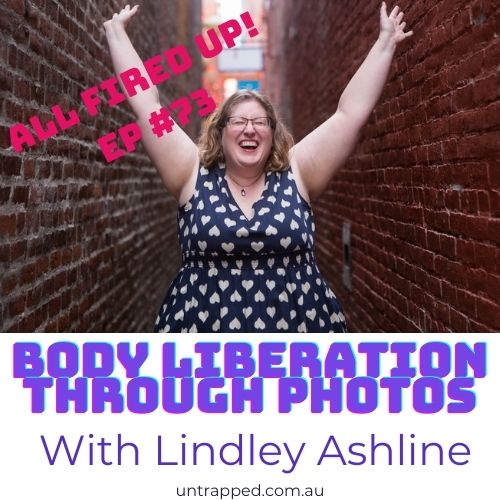
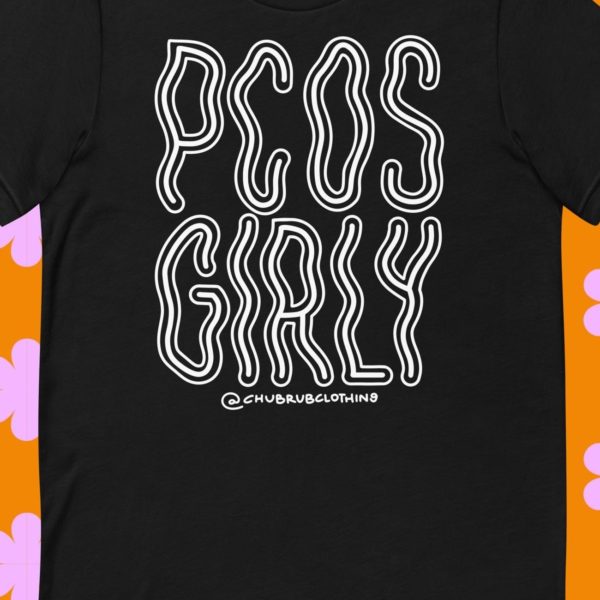
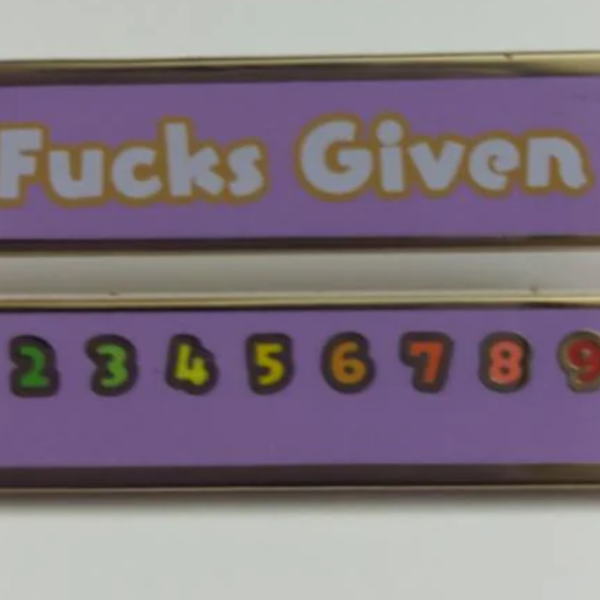
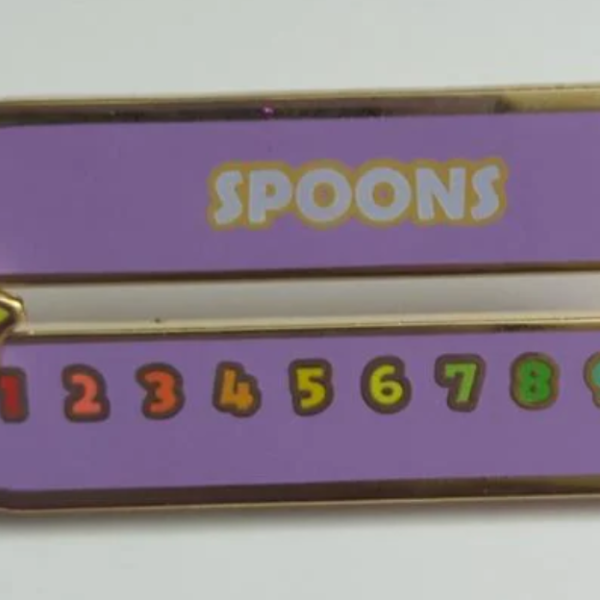
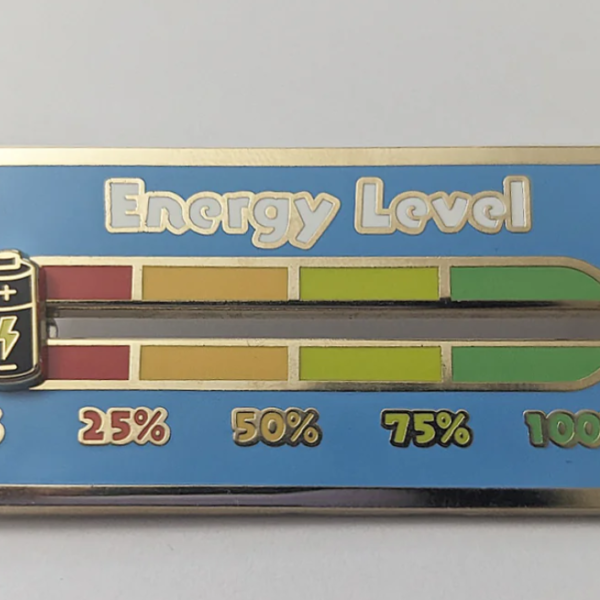

![Illustrated Art Stock: Plus Size Woman Covered with Flowers [Body Liberation Stock exclusive] - Body Liberation Photos & Stock](https://bodyliberationphotos.com/wp-content/uploads/2024/09/Illustrated-Art-Stock-Plus-Size-Woman-Covered-with-Flowers-Body-Liberation-Stock-exclusive-94337-600x600.jpg)
![Illustrated Art Stock: Plus Size Woman Twirls in a Skirt [Body Liberation Stock exclusive] - Body Liberation Photos & Stock](https://bodyliberationphotos.com/wp-content/uploads/2024/09/Illustrated-Art-Stock-Plus-Size-Woman-Twirls-in-a-Skirt-Body-Liberation-Stock-exclusive-94328-600x600.jpg)
![Illustrated Art Stock: Plus Size Woman Twirls in a Skirt [Body Liberation Stock exclusive] - Body Liberation Photos & Stock](https://bodyliberationphotos.com/wp-content/uploads/2024/09/Illustrated-Art-Stock-Plus-Size-Woman-Twirls-in-a-Skirt-Body-Liberation-Stock-exclusive-94323-600x600.jpg)
![Illustrated Art Stock: Plus Size Woman with Hands Over Breasts [Body Liberation Stock exclusive] - Body Liberation Photos & Stock](https://bodyliberationphotos.com/wp-content/uploads/2024/09/Illustrated-Art-Stock-Plus-Size-Woman-with-Hands-Over-Breasts-Body-Liberation-Stock-exclusive-94318-600x600.jpg)
![Illustrated Art Stock: Plus Size Woman with Hands Over Breasts [Body Liberation Stock exclusive] - Body Liberation Photos & Stock](https://bodyliberationphotos.com/wp-content/uploads/2024/09/Illustrated-Art-Stock-Plus-Size-Woman-with-Hands-Over-Breasts-Body-Liberation-Stock-exclusive-94313-600x600.jpg)
